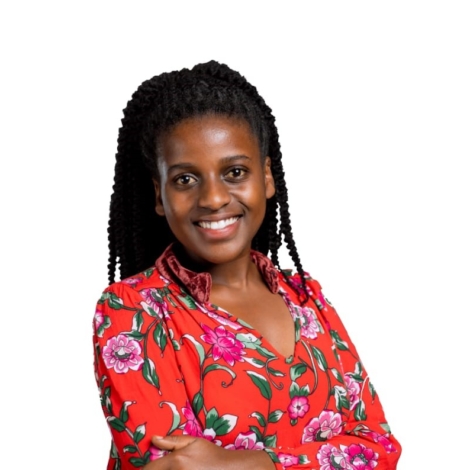What can E4C’s Fellowship do for a career? The ‘Where Are They Now?’ series tracks Engineering for Change’s Fellowship alumni to learn about their work in sustainable development engineering, and the effect that the fellowship had. Our alumni have high-impact careers that are meaningful to them and the communities where they work.
Browse the research E4C Fellows perform as part of their Impact Projects
Our fellows report that the greatest benefits of the program are the professional skills they develop. For more, see this research collaboration with the Siegel Family Endowment that explores the impact of an E4C Fellowship.
With that in mind, we are pleased to introduce Diane Mumararungu, former E4C Fellow, Tutorial Assistant at INES Ruhengeli University in the Northern Province of Rwanda. Diane holds a Bachelors of Architecture with Honors from INES Ruhengeli University.
E4C: What are you working in now?
DM: I am a Tutorial Assistant at INES Ruhengeli University [in Northern Province, Rwanda]. I started my current position at the end of November 2023 and my target is to use this position to apply for masters scholarship. Working as a Tutorial Assistant in the Architecture Department comes with spending more time with students, guiding them on how to mold their architecture journey and serving the society in sum.
I am teaching Sustainable Development Course in second-year architecture. During this course, I teach my students how they can design sustainable elements in the future.
I also assist in teaching Basic Design III. This course is about helping students to design their project from pre-concept to final presentation. During pre-concept stage, I encourage my students to take research-based decisions that solve the problems they identify in site analysis.
I personally want to become a great empathic architect who designs healthcare facilities. The goal of healthcare facilities, especially in Rwanda, is to serve the community. I try to share with my students how Africa needs architects to make the lives of our societies better.
E4C: How does your work intersect with Engineering for Sustainable Development?
DM: Apart from being a Tutorial Assistant and being a National Coordinator in Students For Liberty organization, I am a Founder of Rwanda Green Lighting, which is a Rwanda-based startup that is trying to produce electricity from biomass. As an African country, our electricity production covers only 50 percent of the total population. However, I have identified that problem and together with my team, we are trying to solve that issue by producing green electricity where we want to transform human and animal waste into electricity.
The engineering technology we are trying to use is sustainable because we are helping in two ways:
- We are helping to clean the settlement by taking away human and animal waste
- By transforming this waste into electricity, we are serving undeserved communities that do not have access to electricity.
E4C: Would you describe a typical day in your life?
DM: My day starts at 6:00 am. I wake up early in the morning do some exercise for thirty minutes and start to prepare myself to go to work.
I arrive at the university where I am working at 7:30, which is thirty minutes before the class starts. During these thirty minutes, I check my emails to see if the group I am mentoring have sent any email requesting for help or something.
I start my work at 8:00 am and end at 4:00 pm.
After work, I take two hours to visit my team who are helping me set up my startup. After that, I go back home to prepare for dinner and do other home chores.
At 10:00 pm, I take time for personal development where I take a professional English course or other career development courses available.
E4C: What advice do you have for people interested in the E4C Fellowship?
DM: The majority of architects do not apply to the Fellowship because they think it is for engineers only. By showcasing the work I did in MASS Design, many architects will apply in the next cohort because they will know that this fellowship is not for Engineers only.
E4C: And what advice do you have for people interested in engineering for sustainable development?
DM: To someone who wants to join the field of engineering for sustainable development, I would advise him/her to take one more step towards the field, because due to climate change, the world is demanding engineering and technology, and responding to that issue is uplifting. Joining this field will be another helping hand towards solving that issue in a sustainable way.

